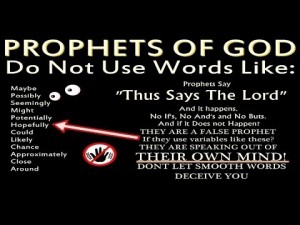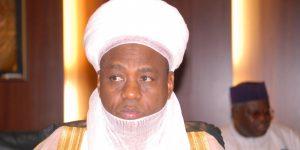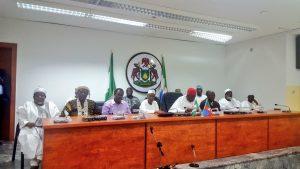
Jezebel and Ahab Meeting-Elijah in Naboth's Vineyard
Megalomania as described in Wikipaedia, is a psychopathological condition characterized by delusional fantasies of power, relevance, omnipotence, and by inflated self-esteem. I’m increasingly convinced that a spiritual version of the affliction is becoming an epidemic in the Church. This epidemic is characterised by a curious substitution of prophecy, which is declaring the revealed mind of God about a present situation or future expectation, or, speaking unto “men for edification” as the new testament puts it, for prayer and supplication.
Modest Patriarchs
Let us look at how the Patriarchs valued the power of their words and pronouncements. They did not pronounce blessings with profligate abandon like we see today. Imagine how difficult it was for Isaac to “prophecy” on his son, Esau, after he has pronounced what God told him to say on Jacob. The gap between Genesis 27:33 to Genesis 27:39 is more than a couple of minutes. Consider the impassioned argument between father and son. Isaac inwardly inquiring “What else should I say now, God?”, while his son, Esau, was crying bitterly: “Bless me, even me also, my father…is it only one blessing you have?”
Consider the caution of Balaam. He would not say a word to his visitors until he truly heard from God. “And he said unto them, Lodge here this night, and I will bring you word again, as the LORD shall speak unto me…” Numbers 22: 8. Even when he was pressured, and in spite of his desire to go for gain, he still said “I cannot go beyond the word of the LORD my God, to do less or more”.
Now to the doyen of the prophets – Elijah. When he did what most of us would like to do today, to give earth-shaking prophetic declarations, he prefaced his declaration with a very solemn affirmation: “As the LORD God of Israel liveth, before whom I stand.” This man was not just speaking. He was saying exactly what God told him. The delusion we speak about today comes from the presumption that “I can also decree like Elijah” without standing before God for counsel like Elijah.

Over to Apostle Paul. He had many useful admonitions on prophecy and those who would prophesy. Firstly, he wrote: “But those who proclaim God’s message [prophesy] speak to people and give them help, encouragement, and comfort.” I Cor 14:3, GNB.
It is quite glamorous to pronounce blessings with an aura of finality, to say “I declare that all you have lost will be restored to you today”. When David was told the same thing by a priest back in those days, he did recover everything, literally. But today, we hear all sorts of pronouncements from the pulpit that evidently have no iota of Divine sanction. When Elijah said there would be rain, it did rain. When Elisha said the “famine is over”, the following day, there was abundance. How many declarations have you heard in recent times that passed away without a trace?
Desire to prophesy!
Apostle Paul did exhort us all to “covet to prophesy”, but this must be balanced by the admonition to “prophesy according to the proportion of faith” Romans 12:6. It is important that people who stand to lead differentiate between praying about their desires for people: “I pray that the Lord will restore all you have lost” and declaring to people that God says “You will recover all you have lost today”.
The minister must constantly ask himself: “Am I saying what God told me to say to this person/people, or am I passing off my desires as God’s word?” If it is just your desire, it is subject of prayer, “not a “thus saith the Lord”.
It is a delusion of grandeur when you prophesy beyond your “proportion of faith”, and indeed a sin to prophesy when God has not spoken. It gives false comfort, unreliable help and leads to discouragement. It reduces your future credibility, as people would soon know that your words carry no weight.
Yes, let us prophesy, but only after we have heard from the Lord.





